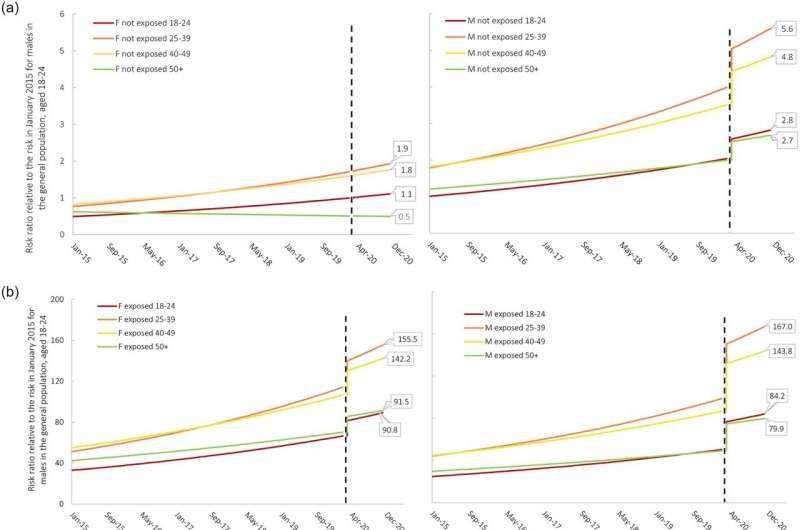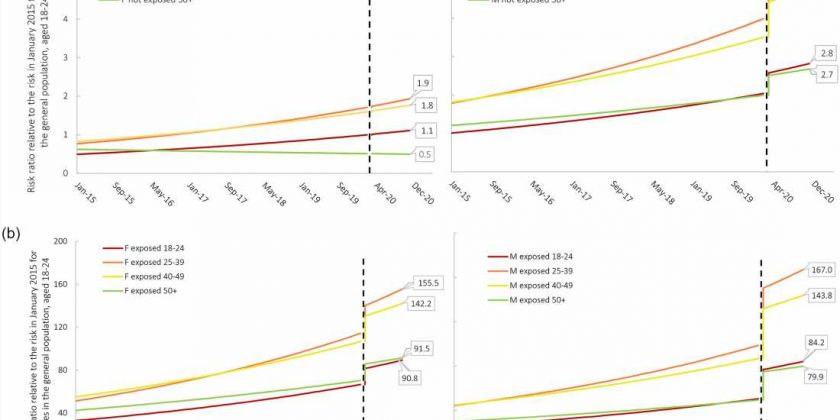
People in Ontario who had recently been incarcerated were at far greater risk of opioid toxicity death during the COVID-19 pandemic, according to a new study from a Simon Fraser University researcher.
The study, published in the journal PLOS One, by SFU criminologist Amanda Butler and colleagues from McMaster University and the University of Toronto, assessed the impacts of the pandemic on opioid toxicity death rates for individuals exposed and not exposed to incarceration in Ontario.
Their results show that while the risk of death due to opioid drug toxicity increased substantially overall for people in Ontario at the start of the pandemic, the increase in risk was particularly large for those who had been incarcerated between 2015 and 2020 in Ontario provincial correctional facilities, increasing by up to 50% among that group between 2015 and 2020.
“The rate of death by opioid toxicity is considerably higher among people who experience incarceration,” says Butler. “COVID-19 exacerbated the already-elevated risk by 1.5 times for men and 1.2 times for women who experienced incarceration coinciding with the start of the pandemic.”
The most substantial impact was on individuals between the ages of 25 and 49 who experienced incarceration.
According to Butler, factors contributing to the rise in drug-related deaths during the pandemic include stress, social isolation, worsening mental health, reductions in resources due to pandemic response, and border restrictions which contributed to a more precarious and unregulated drug market.
Pandemic-related restrictions, such as physical distancing measures and reduced hours of service, also made it increasingly difficult for individuals who rely on drugs to access safer consumption sites.
To reduce the number of drug-related deaths, the researchers suggest implementing more training and resources for people who use drugs, such as drug checking services and increased availability of supervised consumption settings, greater access to evidence-based treatment such as Suboxone and methadone, and strategies to address the toxic drug supply.
They further recommend that in the future, pandemic preparedness and response initiatives explicitly consider prison settings and the specific needs of individuals who experience incarceration, both while in custody and after release.
“Individuals transitioning from prison to community face significant challenges, including a lack of continuity of health care, criminal record-related impediments to employment, a lack of affordable housing and transportation, and difficulty navigating a complex system of government and community-based services,” Butler says.
While pandemic responses differed by province, Butler says that the same overall trend can be expected in British Columbia and other provinces.
“This group is disproportionately impacted by the overlapping public health emergencies; not only in Ontario, but across the country,” she says.
More information:
Amanda Butler et al, The impact of COVID-19 on opioid toxicity deaths for people who experience incarceration compared to the general population in Ontario: A whole population data linkage study, PLOS ONE (2023). DOI: 10.1371/journal.pone.0293251
Journal information:
PLoS ONE
Source: Read Full Article
